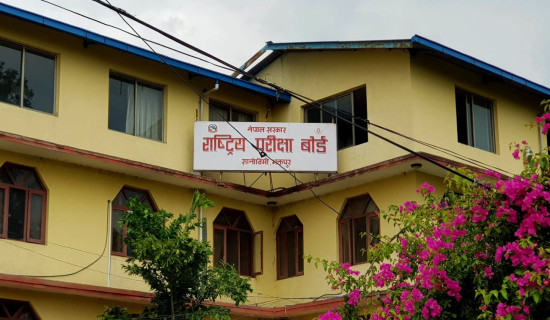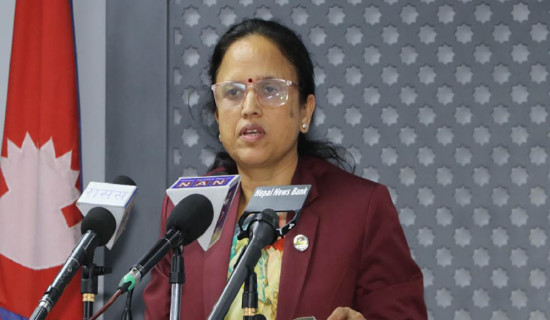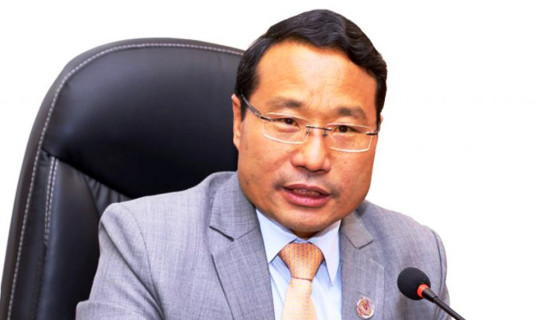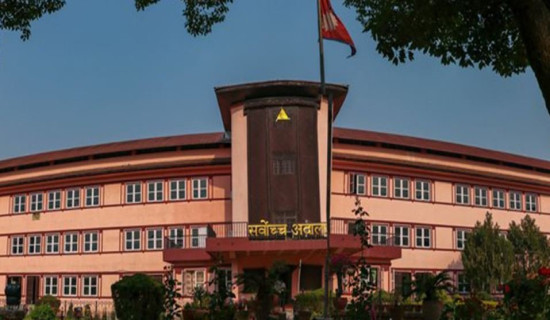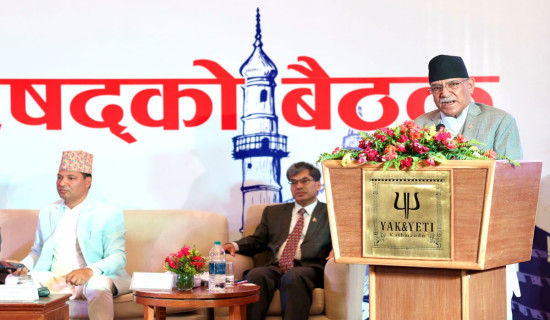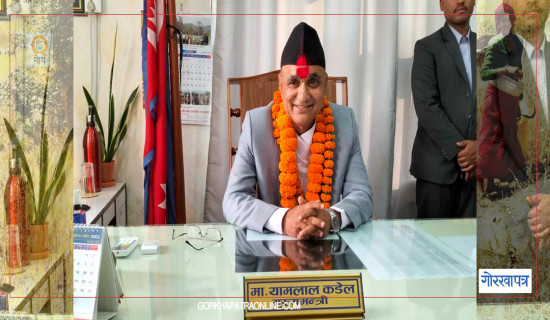- Friday, 26 April 2024
Quad In A Quandary
Loud and clear, the current big power race is for greater multilateralism enabling countries a fairer share in global decision making. Existing contradictions in the Quad community submit a case in point. A nation with a population of 14.5 billion and one of the largest military powers, India is a reviewing its bilateral and multilateral relations, in addition to its security strategies for appropriate preparedness. In this regard, suggestions floated by several Indian political and defence analysts who urge the Narendra Modi government to ensure that India does not become a pawn for proxy wars that other existing powers keenly pursue.
In focus is the Quad comprising Australia, Japan, India and the United States. Basically an idea of the US to checkmate its nearest economic and military power, it has not made much headway simply because India has begun to sense that it would be the frontline partner exposed to China in the event of the worse of conflict. Should Quad be activated in a conflict with China, India would be exposed to the biggest risks among the grouping’s partners. Money and machine the others might provide just as they are supporting Ukraine since February, but India would be the one on the frontline facing the situation.
Brunt-bearing
The equipment and military hardware coming from Quad partners would not enable India to wish away the inevitability of having to bear the brunt of the battle that could drag on for years. It is not for nothing that Australia declares that it is against war with China. Describing Quad as Washington’s desperate move “to contain China’s rise”, Sunil Sharan, writing in the Strategic Insights, does not mince words: “India must forthwith leave the Quad. Land battles will be entirely between India and China and not between the US and China or Japan.”
Economists anticipate if India remains focused on growth, it will be the No. 3 economic power, next to China and the US within the next 15 years. Such projection would collapse if India were to be involved in any major war, especially with a superpower that is newly established. Editor-in-Chief of Freedom Gazette, Mohamed Zeeshan, too, finds India as “the odd one out on several critical geopolitical issues”, which might be the reason for India keeping away from its Quad partners. After all, New Delhi does not see eye to eye with the partners on several “critical geopolitical issues, including Myanmar, Ukraine, and North Korea”.
During Quad ministerial meeting in Melbourne earlier this year, Indian Foreign Minister S. Jaishankar said India does not agree with Western sanctions on Myanmar, which neighbours both India and China. And Myanmar’s longstanding report with its neighbour China carries an important dimension to any military alliance designed by rivals within and outside the region. Unlike the rest of the Quad quartet, India has remained reticent on making any compelling comment on the Ukraine war. Jaishankar reacted strongly to sharp suggestions from the US not purchase Russian oil.
India’s issue with China basically emanates from its border dispute in the northern region. It has distanced itself firmly away from the other partners’ positions on the Muslims in Xinjiang, the pro-change campaigners in Hong Kong and Beijing’s stance on Taiwan. Pragmatism plays a crucial role in matters of geo-political strategy, as underscored by the fact that India maintains an embassy in nuclear-power North Korea unlike the absence of the other three Quad members.
M.K. Bhadrakumar, another noted Indian analyst, recommends: “India should quit Quad now!” He insists that “hedging between superpowers — United States, Russia and China — was never the smart thing to do”. India’s differences with China are basically confined to border dispute — something India has had with also a number of other neighbouring countries. Whereas Australia, Japan and the US do not share such concerns — away as they are thousands of miles away across vast oceans — India’s case is different.
The US National Security Advisor Jake Sullivan explicitly threatened China in an interview with CNN, a day before a meeting with China’s top diplomat and Politburo Member Yang Jiechi in Rome: “There will absolutely be consequences for large-scale sanctions’ evasion efforts or support to Russia. We will not allow that to go forward and allow there to be a lifeline to Russia from these economic sanctions from any country, anywhere in the world.”
Practical plane
Such warning will wear off as far as India is concerned, considering that two-thirds of its weaponry come from Russia since some five decades. Even as the US-led European powers begin their strategies to contain China’s growth — military as well as economic — Russia and India are reviewing their relations since the early 1990s when the world was described as a unipolar one after the 1991 breakup of the Soviet Union. The oil price concessions that Moscow recently offered to New Delhi are a pointer to this.
The world’s largest country that Russia is, and the two most-populous nations, China and India, find some areas of common interest. Their combined territorial reach, population size at 3.15 billion and economy — existing and potential — account for a staggering strength. To cap it, China shares long common borders with both India and Russia — an advantage the U.S., the United Kingdom, Australia and Japan, among others, do not have with one another. This, too, has prodded India to review and revise its role in Quad.
The AUKUS partnership between Australia, the UK, and the US is apparently an outcome of the grouping’s search for an alliance more dependable than Quad in the Indo-Pacific region for common security interests. Some trust deficiency between India and the rest of Quad partners is obvious. India might not fill the intended bill and hence the more exclusive club.
New Delhi realises the need to go for and deepen alliances that serve its interests best with minimal risks to its core interests. It needs to make choices without inordinate delay by weighing all aspects of existing conditions and their long-term implications in a world witnessing change in power equation from the West to the East.
(Professor Kharel specialises in political communication.)








